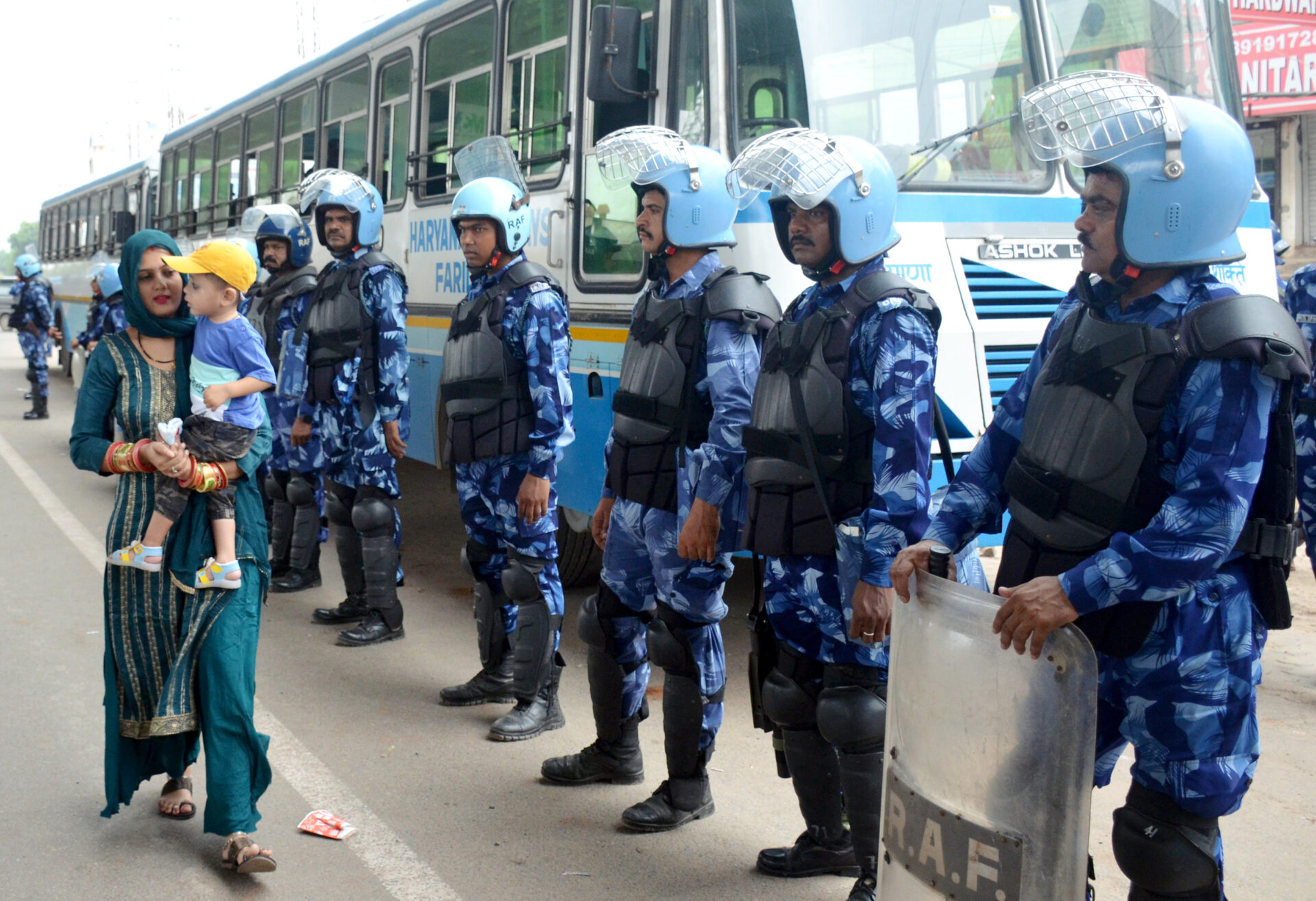Sociologists, historians call for serious measures to address backwardness in the Mewat region.
Away from the political slugfest over the communal flare up in Haryana’s Nuh district earlier this week, sociologists and historians have called for serious measures to address backwardness in the Mewat region which they dubbed as one of the major factors contributing to the tension leading to the riots during a religious event that left six people, including two Home Guards, dead.
Experts also warned against branding a particular community as “criminal minded” and referred to data that showed that despite a high rate of crime in the area, there was no real precedent of communal riots in the district.
The historical background to the Meo tribe being branded criminal goes back to the British era when the community was declared a criminal tribe under the Criminal Tribes Act, a punishment delivered for their support to the revolt in 1857.
The historical background to the Meos being branded a ‘’criminal people’’ goes back to the British colonial era when the entire community was declared a ‘’criminal tribe’’ under the Criminal Tribes Act of 1871, ‘’a punishment delivered for their active participation in the great rebellion of 1857’’, said Prof. S K Chahal, Chairperson of the Department of History and Dean, Faculty of Social Sciences, Kurukshetra University. Prof Chahal added, “Once labelled as criminal tribe, they were denied opportunities to progress and this left them with little option but to take to crime for subsistence.”
He said the Meo community follows syncretic traditions and, according to historians, their roots are either in the Rajputs or in the Meena tribe. “The members of the community even celebrate Hindu festivals like Diwali and Holi alongwith festivals of Islam, but the practice has gradually come down.”
Over the centuries, from the 12th to the 17th, the conversion of the Meo community was overseen by rulers, from Sultans of Delhi up to Aurangzeb, thus, giving a distinct Muslim character to it. Religious movements, like those headed by Sufi saint Nizamuddin Auliya, also played a role in the community gravitating towards syncretic traditions under Islam.
Dr Chand Singh, associate professor, DAV College, Ambala, also warned against branding an entire community as crime-oriented. He said: “The social backwardness in the area is more to blame for the high crime rate.”
“A direct fallout of backwardness and lack of education has been that the youth who break the law are unaware of its far-reaching implications and impact on their own lives,” he said.
Historians and sociologists suggested improved education facilities as the best solution for tackling backwardness in the Mewal region that would ultimately help the region gradually.
According to the 2011 census, about 77% of the population in Nuh is Muslim and the area dominated by the Meo community. Nuh is part of the Mewat region spread across Nuh in Haryana, and Alwar and Bharatpur districts of Rajasthan, besides some parts of Uttar Pradesh such as Mathura.
Five tehsils of the Mewat region that fall in Haryana comprised more than a million Muslims in 2011. Their population rose from 62% in 1971 to 75% in recent years.
A report published by the Centre for Policy Studies says, “From the data, it is clear that the Muslims of Mewat have numerically flourished in the period following Independence. And, they seem to be in the process of establishing an exclusively Muslim pocket in the near future.”
The spurt in Muslim population in the region is attributed by experts to backwardness as, they say, population ratio in almost all underdeveloped area tends to be very high due to lack of awareness on family planning. Besides, some observers see an unnatural spurt in the demographical shift in the region due to settlement of alleged illegal migrants like Rohingyas from Bangladesh.
The growth of fundamentalist elements in the region is also attributed by Prof Chahal to the activities of the Tableegh and Tehreek movements, which started in the British era, that continue to be alive in the region. Aversion to family planning among a section of Muslims is also alleged to be linked to the presence of supporters of these movements.
Despite the heightened tension in the Nuh area or the high decibel debate on demographic shift in the region, Prof Chahal called for attempts to bridge the so-called communal divide: “Inflammatory statements and politics of hatred will not do any benefit. Restraint needs to be observed. And the propagation of syncretic Mewati culture and its traditions could be the most effective way out.”

